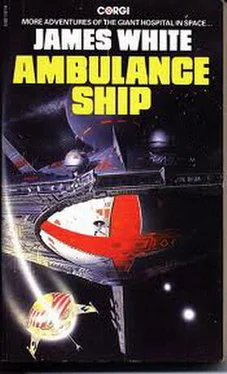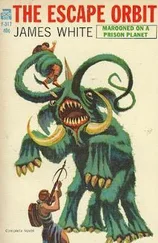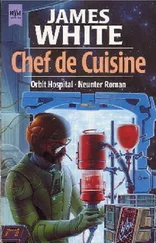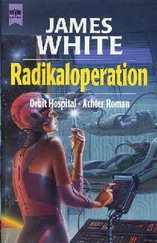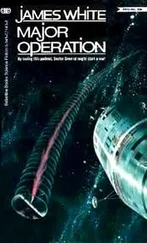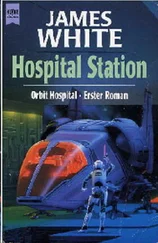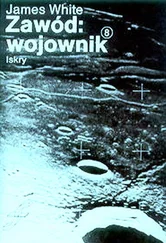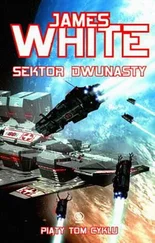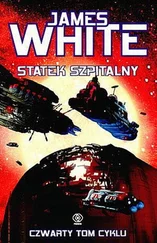“But I did not intend to give a lecture on Kelgians,” he continued. “I did intend to discuss briefly the formation of what is now called the Galactic Federation.
On the briefing screen behind him there appeared suddenly a three-dimensional representation of the galactic double spiral with its major stellar features and the edge of a neighboring galaxy, shown at distances that were not to scale. As they watched and listened a short, bright line of yellow light appeared near the rim, then another and another-the links between Earth and the early Earth-seeded colonies, and the systems of Orligia and Nidia, which were the first extraterrestrial cultures to be contacted. Another cluster of yellow lines appeared, the worlds colonized or contacted by Traltha.
Several decades had passed before the worlds available to the Orligians, Nidians, Tralthans and Earth-humans were made available to each other. (Beings tended to be suspicious in those days, on one occasion even to the point of war.) But time as well as distance was being compressed on this representation.
The tracery of golden lines grew more rapidly as contact, then commerce, was established with the highly advanced and stable cultures of Kelgia, Illensa, Hudlar, Melf and, if any, their associated colonies. Visually it did not seem to be an orderly progression. The lines darted inwards to the galactic center, doubled back to the rim, seesawed between zenith and nadir, and even made a jump across intergalactic space to link up with the Ian worlds-although in that instance it had been the Ians who had done the initial traveling. When the lines connected the worlds of the Galactic Federation, the planets known to contain intelligent and, in their own sometimes peculiar fashions, technically and philosophically advanced life, the result was an untidy yellow scribble resembling a cross between a DNA molecule and a bramble bush.
… Only a tiny fraction of the Galaxy has been explored by us or by any of the other races within the Federation,” O’Mara continued, “and we are in the position of a man who has friends in far countries but has no idea of who is living in the next street. The reason for this is that travelers tend to meet more often than people who stay at home, especially when the travelers exchange addresses and visits regularly.
Providing there were no major distorting influences en route and the exact co-ordinates of the destination were known, it was virtually as easy to travel through subspace to a neighboring solar system as to one at the other end of the Galaxy. But one had first to find an inhabited solar system before its coordinates could be logged, and that was proving to be no easy task.
Very, very slowly, a few of the smaller blank areas in the star charts were being mapped and surveyed, but with little success. When the survey scoutships turned up a star with planets, it was a rare find-even rarer when the planets included one harboring life. And if one of the native life-forms was intelligent, jubilation, not unmixed with concern over what might be a possible threat to the Pax Galactica, swept the worlds of the Federation. Then the Cultural Contact specialists of the Monitor Corps were sent to perform the tricky, time-consuming and often dangerous job of establishing contact in depth.
The Cultural Contact people were the elite of the Monitor Corps, a small group of specialists in e-t communications, philosophy and psychology. Although small, the group was not, regrettably, ove — orked …
During the past twenty years,” O’Mara went on, “they have initiated First Contact procedure on three occasions, all of which resulted in the species concerned joining the Federation. I will not bore you with details of the number of survey operations mounted and the ships, personnel and materiel involved, or shock you with the cost of it all. I mention the Cultural Contact group’s three successes simply to make the point that within the same time period this hospital became fully operational and also initiated First Contacts, which resulted in seven new species joining the Federation. This was accomplished not by a slow, patient buildup and widening of communications until the exchange of complex philosophical and sociological concepts became possible, but by giving medical assistance to a sick alien.”
The Chief Psychologist stared at each of them in turn, and it was obvious that he did not need Prilicla to tell him that he had their undivided attention. “I’m oversimplifying, of course. You had the medical and/or surgical problem of treating a hitherto unknown life-form. You had the hospital’s translation computer, the second largest in the Galaxy, and Monitor Corps communications specialists to assist where necessary. Indeed, the Corps was responsible for rescuing many of the extraterrestrial casualties. But the fact remains that all of us, by giving medical assistance, demonstrated the Federation’s good will towards e-ts much more simply and directly than could have been done by any long-winded exchange of concepts. As a result, there has recently been a marked change of emphasis in First Contact policy …
Just as there was only one known way of traveling in hyperspace, there was only one method of sending a distress signal if an accident or malfunction occurred and a vessel was stranded in normal space between the stars. Tight-beam subspace radio was not a dependable method of interstellar communication, subject as it was to interference and distortion caused by intervening stellar bodies, as well as requiring inordinate amounts of a vessel’s power-power which a distressed ship was unlikely to have available. But a distress beacon did not have to carry intelligence. It was simply a nuclear-powered device which broadcast a location signal, a subspace scream for help, which ran up and down the usable frequencies until, in a matter of minutes or hours, it died.
Because all Federation ships were required to file course and passenger details before departure, the position of the distress signal was usually a good indication of the physiological type of species that had run into trouble, and an ambulance ship with a matching crew and life-support equipment was sent from Sector General or from the ship’s home planet.
But there were instances, far more than were generally realized, when the disasters involved beings unknown to the Federation in urgent need of help, help which the would-be rescuers were powerless to give.
Only when the rescue ship concerned had the capability of extending its hyperdrive envelope to include the distressed vessel, or when the beings could be extricated safely and a suitable environment prepared for them within the Federation ship, were they transported to Sector General. The result was that many hitherto unknown life-forms, being of high intelligence and advanced technology, were lost except as interesting specimens for dissection and study. But an answer to this problem had been sought and, perhaps, found.
It had been decided to equip one very special ambulance ship that would answer only those distress signals whose positions did not agree with the flight plans filed by Federation vessels.
Whenever possible,” O’Mara continued, “we prefer to make contact with a star-traveling race. Species who are intelligent but are not space travelers pose problems. We are never sure whether we are helping or hindering their natural development, giving them a technological leg up or a crushing inferiority complex when we drop down from their sky—”
Naydrad broke in: “The starship in distress might not possess a beacon. What then?”
“If a species advanced enough to possess starships did not make this provision for the safety of its individuals,” O’Mara replied, “then I would prefer not to know them.”
“I understand,” said the Kelgian.
Читать дальше
